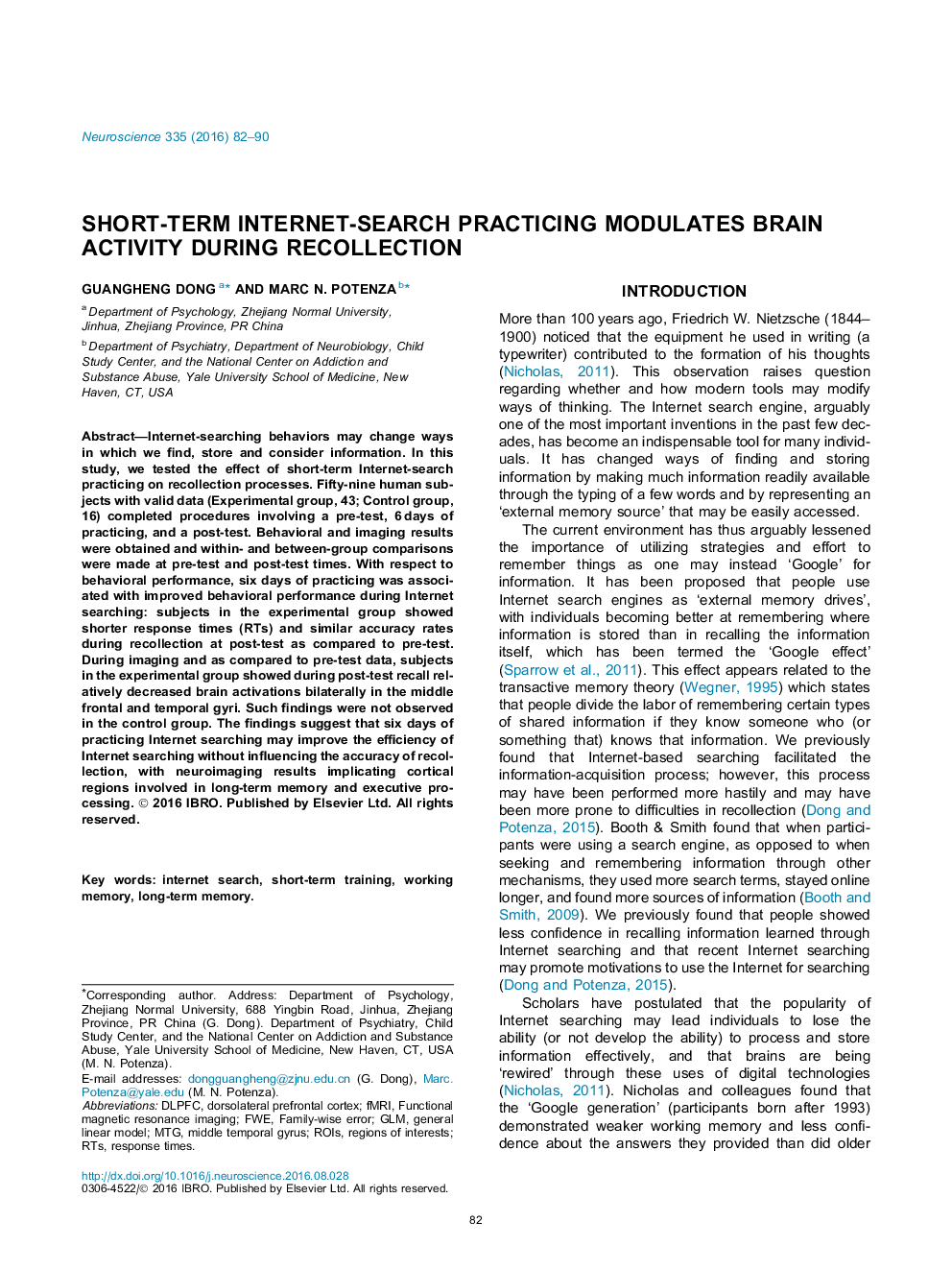| Article ID | Journal | Published Year | Pages | File Type |
|---|---|---|---|---|
| 4337259 | Neuroscience | 2016 | 9 Pages |
•Internet Search training improved searching performance.•Internet search training decreased brain activations in the temporal gyrus.•The training changed cortical regions involved in long-term memory.
Internet-searching behaviors may change ways in which we find, store and consider information. In this study, we tested the effect of short-term Internet-search practicing on recollection processes. Fifty-nine human subjects with valid data (Experimental group, 43; Control group, 16) completed procedures involving a pre-test, 6 days of practicing, and a post-test. Behavioral and imaging results were obtained and within- and between-group comparisons were made at pre-test and post-test times. With respect to behavioral performance, six days of practicing was associated with improved behavioral performance during Internet searching: subjects in the experimental group showed shorter response times (RTs) and similar accuracy rates during recollection at post-test as compared to pre-test. During imaging and as compared to pre-test data, subjects in the experimental group showed during post-test recall relatively decreased brain activations bilaterally in the middle frontal and temporal gyri. Such findings were not observed in the control group. The findings suggest that six days of practicing Internet searching may improve the efficiency of Internet searching without influencing the accuracy of recollection, with neuroimaging results implicating cortical regions involved in long-term memory and executive processing.
